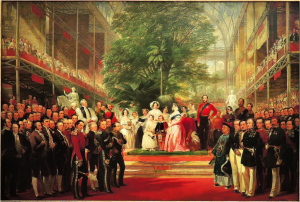This British Civilisation course aims to provide students with a broad understanding of the historical events and cultural context of the 19th century in Britain and Ireland, especially from the accession of Queen Victoria in 1837. This course will cover the major milestones of the century – in particular industrialisation and its social consequences, the gradual process of democratisation, the rise of the British Empire as well as Victorian social attitudes, such as gender relations.
Bibliography
(the books are available at the BU)
Laurent Bury, Civilisation britannique au XIXe siècle, Hachette, 2001.
Bernard Cottret, Histoire de l’Angleterre, Tallandier, 2007.
Theodore K. Hoppen, The Mid-Victorian Generation 1846-1886, Oxford University Press, 2000.
Brenda Williams, Victorian Britain, Jarrold publishing, 2005.
Judith R. Walkowitz, Prostitution and Victorian Society : Women, Class, and the State, Cambridge University Press, 1991.
Patrick Joyce, Work, Society and Politics : The Culture of the Factory in Later Victorian England, Methuen, 1982.
Anthony Miller, Poverty Deserved ? : Relieving the Poor in Victorian Liverpool, Birkenhead Press, 1988.
F.M.L. Thompson, The Rise of Respectable Society : A Social History of Victorian Britain : 1830-1900, Fontana press, 1988.
Brochure
The brochure with the texts we shall study in the course of the semester can be downloaded here. You must register for the course to get the password.
Reading about Victorian Britain – secondary and primary sources
Click here to read about education, religion, philanthropy, clubs and societies in Victorian Britain.
The Victorian Web has some good resources about Victorian Britain (but relatively few primary sources other than literary texts).
The BU has a very interesting primary source database which can be useful for the study of certain political and social issues: 19th-Century Parliamentary Papers
The Cahiers victoriens et édouardiens is an open-access scholarly journal in which you may find secondary sources of interest.
Fordham University had a Modern History Sourcebook with all kinds of primary sources on 19th-century Britain.
Referencing your sources
In every written assignment you should reference your sources using a citation style. For the purpose of this course, you will be asked to use the MLA style.
The MLA style does not have footnotes. Whenever you refer to somebody else’s work, you should give a short reference in brackets with the last name of the author, the title of the book, article or document if you reference different things written by the same author in your paper, and the page number. For example: (Cottret, 12) or if you reference several books by Cottret in your paper (Cottret, Histoire de l’Angleterre, 12). At the end of your paper you then give a reference list (bibliography) with the complete references in MLA style for every single book, paper, website, etc, you have used to write your assignment.
General guidelines for your writing your research paper
Your assignement must include bibliographical references in the MLA style. You must do some background reading on the theme you have selected.
Broad themes are given and you must not try to give an overview of everything that relates to the theme. Rather you should choose one specific angle or sub-theme which you think is well illustrated by one particular primary source. Primary sources can be found in the brochure and on the internet. There are a number of links to primary and secondary sources on this web page.
Choosing a theme for your assignment
Lastest Posts
To access older posts for this course, please click on “All posts for Victorian Britain” in the sidebar menu.
- Lecture 6 – Britain and the Empire[1]
- Lecture 5 – Towards a free-trading British Empire
- Lecture 4 – The triumph of the bourgeois order
- Lecture 3 – Social reforms and improvement
- Research paper – Calendar and guidelines
- Lecture 2 – Political Reforms: Extending the Franchise
- Lecture 1
- Homework for 29th Sept – Worksheet on the text by Cooke-Taylor

